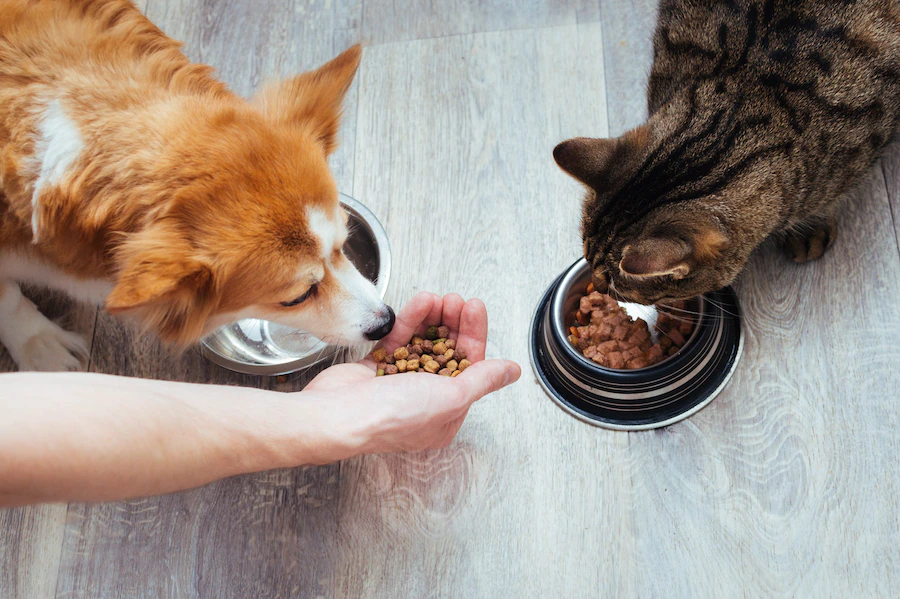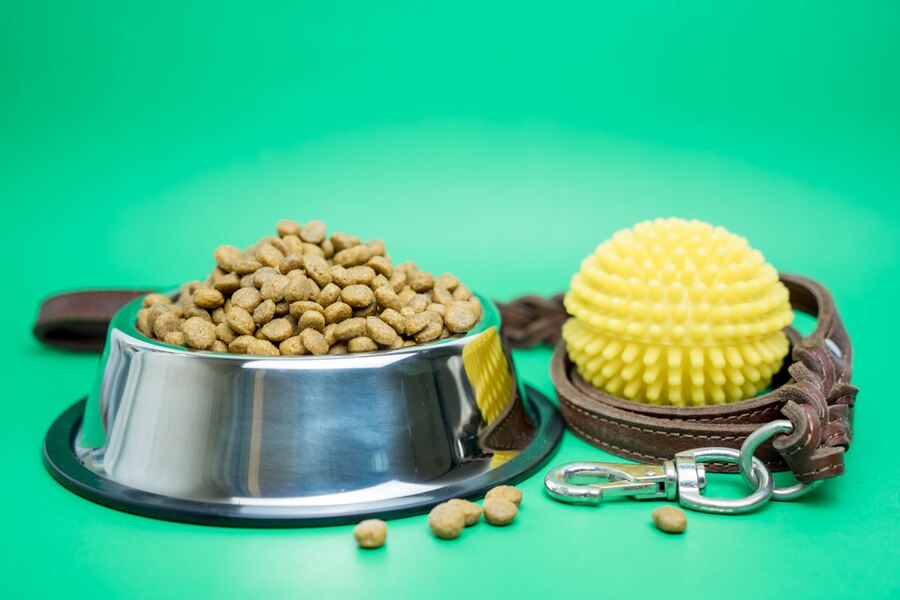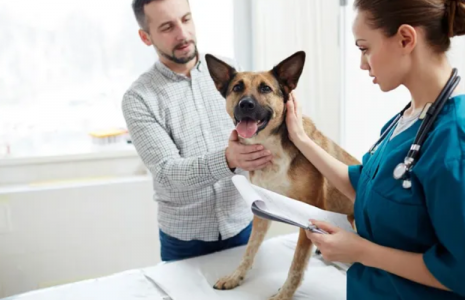Pawsitively Balanced: Optimal Nutrition For Happy Pets


Are you looking for ways to improve your pet’s health and happiness? A balanced diet is crucial to your pet’s overall well-being.
Providing your furry friend with the right nutrients in the right amounts can help them live a long and healthy life. This is where Pawsitively Balanced comes in – a comprehensive guide to optimal nutrition for happy pets.
Pawsitively Balanced is a resource that provides pet owners with the information they need to make informed decisions about their pet’s diet. It covers everything from the basics of pet nutrition to more advanced topics like special dietary requirements for pets with health issues.
With Pawsitively Balanced, you can learn about the different types of pet food available and how to choose the right one for your pet.
By following the guidelines provided by Pawsitively Balanced, you can ensure your pet gets all the nutrients they need to thrive. So why wait? Start exploring this valuable resource today and give your furry friend the gift of optimal nutrition.
Key Nutrients For Pets

When it comes to keeping your furry friend healthy and happy, nutrition plays a crucial role. Providing your pet with a balanced and nutritious diet is essential to maintaining their overall well-being. Here are the key nutrients that your pet needs to thrive:
Proteins And Fats
Proteins and fats are essential macronutrients your pet needs to maintain healthy muscles, skin, and coat. Proteins are made up of amino acids, which are the building blocks of muscle tissue. Rich sources of protein for pets include meat, fish, and eggs.
Fats are also important for your pet’s health, providing energy and helping to absorb vitamins. Under good fat sources, comes chicken fat, fish oil, and flaxseed oil.
Minerals And Vitamins
Vitamins as well as minerals are essential micronutrients your pet needs in small amounts to support their overall health. Vitamins help to regulate bodily functions, while minerals are important for strong bones and teeth.
Some important vitamins for pets include vitamins A, B vitamins, and vitamin D. Good mineral sources include calcium, magnesium, and phosphorus.
Carbohydrates
Carbohydrates are an important source of energy for your pet. They are found in grains, vegetables, and fruits.
While some pets may have difficulty digesting certain carbohydrates, such as grains, others may benefit from a carbohydrate-rich diet. It is important to work with your veterinarian to determine the best diet for your pet’s individual needs.
Choosing The Right Food
When it comes to feeding your pet, selecting the right food is important as it keeps their overall health.
With so many options available, deciding what to feed your pet can be overwhelming. This section will discuss the two main types of pet food brands: commercial and homemade.
Commercial Pet Foods

Commercial pet foods are the most common type of food for pets. They are convenient, easy to store, and have various flavors and textures.
However, not all commercial pet foods are created equal, and it’s essential to read the label carefully to make sure t that you are feeding your pet a diet of high quality.
When selecting a commercial pet food, look for the following:
- High-quality protein food like meat, fish, or poultry
- Whole grains, such as brown rice or oatmeal
- Fruits and vegetables, such as sweet potatoes or carrots
- Essential minerals and vitamins, such as vitamin E and zinc
Avoid commercial pet foods that contain:
- Artificial colors, flavors, or preservatives
- Meat by-products or fillers, such as corn or soy
- Excessive amounts of carbohydrates or sugars
Homemade Pet Foods
Homemade pet foods are becoming increasingly popular as they allow pet owners more control over their pets’ eating. However, one needs to note that homemade pet foods require careful planning and preparation to ensure your pet receives all the necessary nutrients.
When preparing homemade pet food, consider the following:
- Consult with a veterinary nutritionist to determine the appropriate ingredients and portion sizes for your pet’s specific needs
- Use food with sources of high protein, such as lean meats or fish
- Incorporate a variety of fruits and vegetables to provide essential vitamins along with minerals
- Avoid using ingredients that are toxic to pets, such as onions or garlic
Special Dietary Needs
When it comes to optimal nutrition for your pets, it’s essential to consider their special dietary needs.
Different life stages and health conditions require specific diets to ensure your pet stays healthy and happy. This section covers the special dietary needs of puppies, kittens, seniors, and pets with health conditions.
Diet For Puppies And Kittens
Puppies and kittens have different nutritional needs than adult dogs and cats. They require more protein, fat, and calories to support their growth and development. Feeding them a diet specifically formulated for their life stage is essential.
When choosing a diet for your puppy or kitten, look for one that meets the Association of American Feed Control Officials (AAFCO) standards for growth and development. These diets are formulated to provide the right balance of nutrients your pet needs to grow and thrive.
Diet For Senior Pets
As pets age, their nutritional needs change. They may require fewer calories and more fiber to maintain a healthy weight and digestive function. Senior pets may also benefit from diets that contain joint-supporting nutrients such as glucosamine and chondroitin.
Diet For Pets With Health Conditions
Pets with health conditions such as diabetes, kidney disease, or food allergies require special diets to manage their conditions. These diets are formulated to meet their specific nutritional needs and help manage their symptoms.
Supplements And Treats
Supplements can be a great addition to your pet’s diet but should not replace a balanced and complete diet. If your pet has a specific health condition or dietary need, supplements may be recommended by your veterinarian.
Glucosamine and chondroitin supplements may help support joint health in older dogs or those with arthritis.
It is important to choose high-quality supplements that are specifically formulated for pets. Always follow the recommended dosage and do not exceed the daily limit. Too many specific vitamins, minerals, and other treats can harm your pet’s health.
Choosing Healthy Treats
Treats can be a fun way to reward your pet, but they should not make up a significant portion of their diet. Look for healthy treat options that are low in calories and made with high-quality ingredients. Avoid treats that contain artificial preservatives, colors, and flavors.
Some healthy treat options for dogs include:
- Carrots
- Apples (without seeds)
- Blueberries
- Green beans
- Sweet potatoes
Conclusion
By now, you should understand the importance of optimal nutrition for your furry friend. A balanced diet is crucial for your pet’s overall health and well-being.
Finally, don’t forget about the importance of fresh water. Your pet should always have access to clean, fresh water to stay hydrated and healthy.
By following these guidelines and working with your veterinarian, you can ensure your pet receives the optimal nutrition they need to live a happy and healthy life.









Leave A Comment